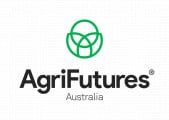The Tasmanian Government’s AgriVision 2050 Report sets the goal of growing Tasmanian agriculture to reach $10 billion in farm gate value in 2050. This is a bold challenge to set for farmers across the state and it means that the sector will need to grow at more than double the rate experienced over the past 20 years. It will need to do so in a less predictable, more extreme climate, and in a market that is increasingly requiring farmers to operate in a way that minimises the impact on soil health, water quality, and biodiversity.
Central to achieving the challenge of Tasmania reaching $10 billion in farm gate value is the adoption of digital agricultural technology (agtech). Following the AgriVision 2050 Report, a comprehensive review of agtech training needs in Tasmania concluded that the most pressing need is for more investment in training in digital literacy and agtech to underpin the growth needed to achieve $10 billion farm gate value by 2050. This was the key conclusion of the Skills Tasmania report on Agriculture Technology Training Needs for Tasmania.
Indeed one of the four Federal priorities outlined in the National Agricultural Innovation Policy Statement is that Australia becomes a mature adopter, developer and exporter of digital agriculture. Specifically this means “having the people, skills, systems, data, digital
technology and connectivity to deliver a productivity increase” as well as “reducing the barriers to the digitalisation of Australian agriculture”.
Digital literacy is an essential, and fundamental, quality that enables farmers to access the potential of digital innovation and technology to support production and farm management. Farmers need access to information and tools to assist with adaptation and to mitigate the impact of climate variability and change on crops and livestock. For example, digital
literacy empowers farmers to access and use soil and climate datasets, remote sensing technology, and farm management systems that promote the best use of irrigation systems, crop selection, and other practices that minimise the effects of drought or other extremes. Digital literacy also allows farmers to build community, creating connection with other farmers, researchers and government agencies to share knowledge and best practices on climate-smart, drought-resilient agriculture. Digital literacy is an essential enabler that helps farmers to make informed decisions, increase productivity, and adopt practices that reduce the impact of drought on their farming operations.
This project will provide a comprehensive understanding of the key digital literacy barriers, enablers, technology and on-farm success stories in Tasmania, with an intent to explore challenges spanning connectivity gaps through to unique demographic and socio-economic barriers.
The project will focus in particular on three key sectors that form the foundation of Tasmanian agriculture – livestock (dairy and beef), vegetables (peas, potatoes, and beans), and fruit (berries a



-crop-850x675.png)